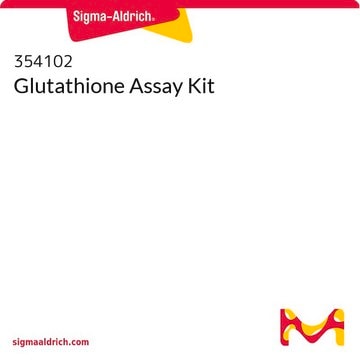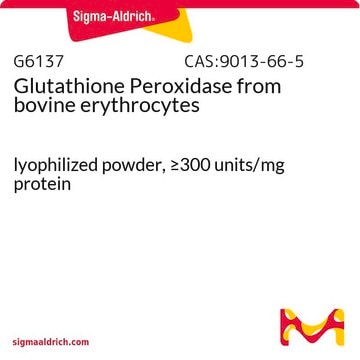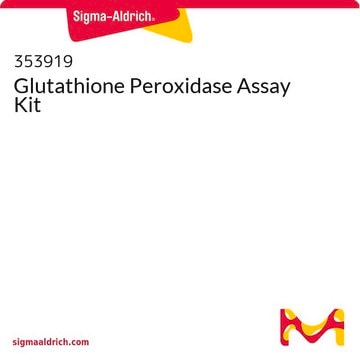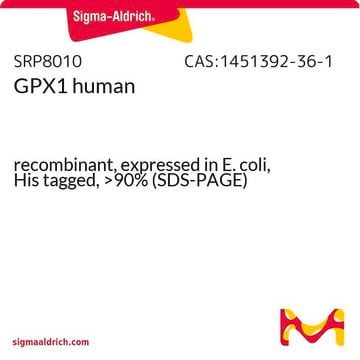CGP1
Glutathione Peroxidase Cellular Activity Assay Kit
Sufficient for 100 colorimetric tests
Sinónimos:
Cellular glutathione peroxidase, c-GPx
About This Item
Productos recomendados
Quality Level
usage
sufficient for 100 tests
shelf life
Kit is stable for 24 months when unopened.
detection method
colorimetric
shipped in
wet ice
storage temp.
−20°C
General description
Suitability
Principle
Other Notes
Solo componentes del kit
- tert-Butyl hydroperoxide 1 mL
related product
signalword
Danger
Hazard Classifications
Acute Tox. 2 Inhalation - Acute Tox. 3 Dermal - Acute Tox. 4 Oral - Aquatic Chronic 2 - Eye Dam. 1 - Flam. Liq. 3 - Muta. 2 - Org. Perox. F - Skin Corr. 1C - Skin Sens. 1 - STOT SE 3
target_organs
Respiratory system
Storage Class
5.2 - Organic peroxides and self-reacting hazardous materials
Certificados de análisis (COA)
Busque Certificados de análisis (COA) introduciendo el número de lote del producto. Los números de lote se encuentran en la etiqueta del producto después de las palabras «Lot» o «Batch»
¿Ya tiene este producto?
Encuentre la documentación para los productos que ha comprado recientemente en la Biblioteca de documentos.
Los clientes también vieron
Artículos
Cellular oxidative stress is countered by enzymatic scavengers and antioxidant modulators against reactive oxygen species damage.
Cellular oxidative stress is countered by enzymatic scavengers and antioxidant modulators against reactive oxygen species damage.
Cellular oxidative stress is countered by enzymatic scavengers and antioxidant modulators against reactive oxygen species damage.
Cellular oxidative stress is countered by enzymatic scavengers and antioxidant modulators against reactive oxygen species damage.
Nuestro equipo de científicos tiene experiencia en todas las áreas de investigación: Ciencias de la vida, Ciencia de los materiales, Síntesis química, Cromatografía, Analítica y muchas otras.
Póngase en contacto con el Servicio técnico











